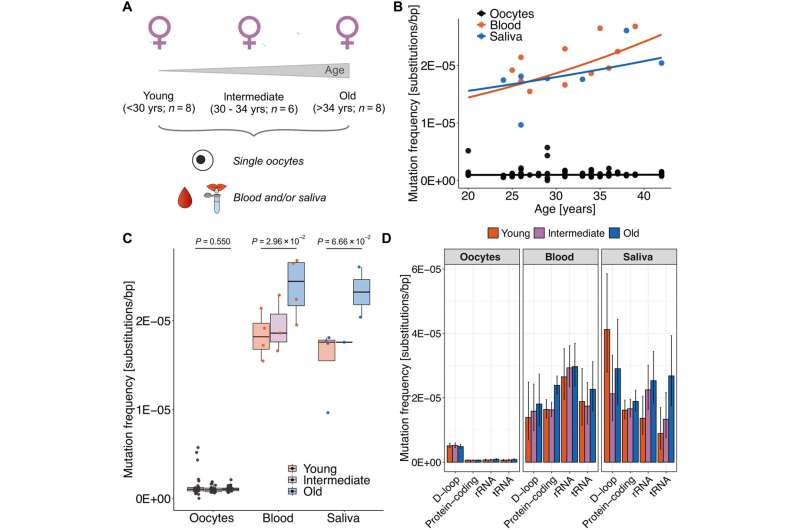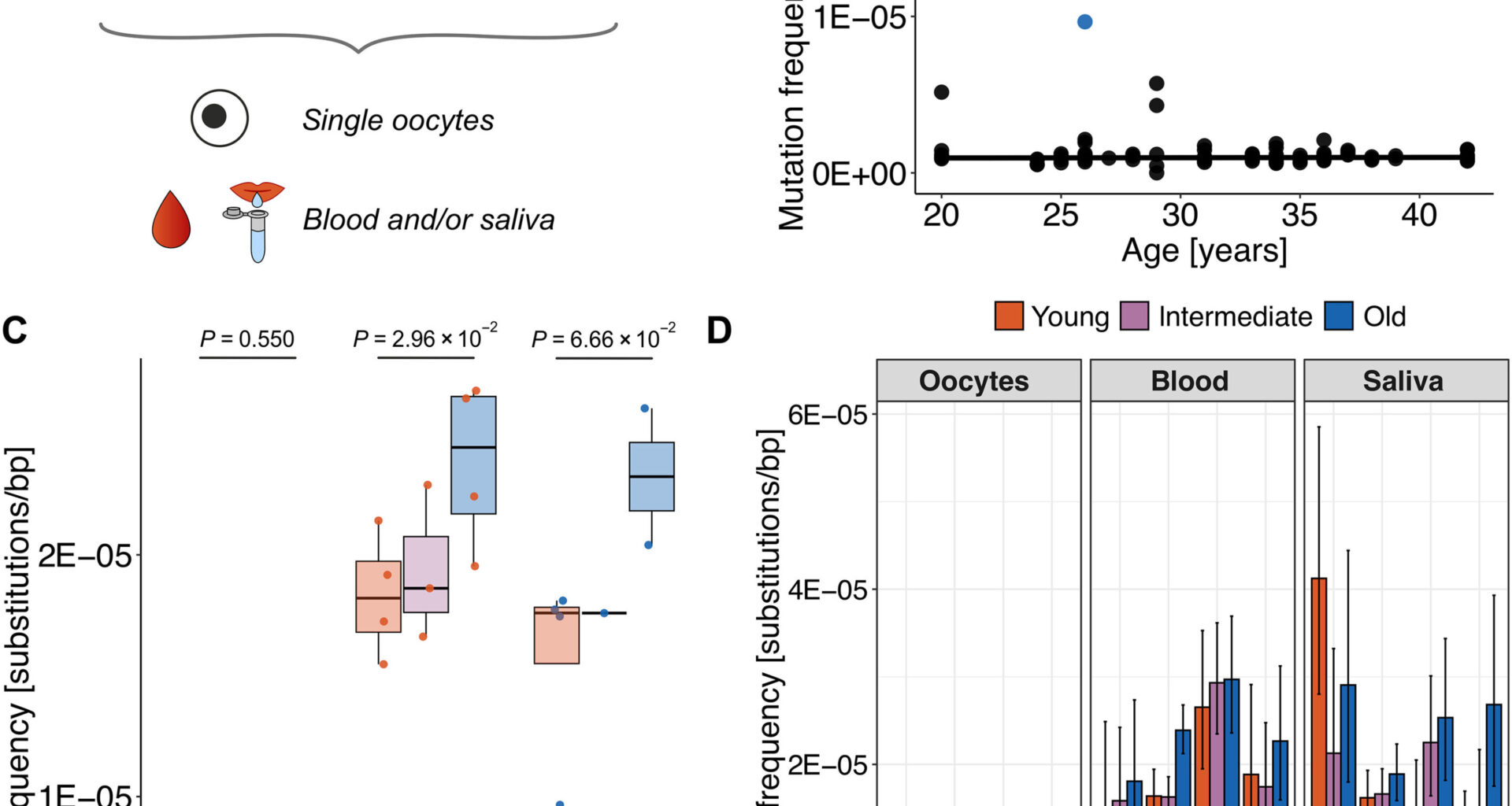
mtDNA mutation frequencies in oocytes, blood, and saliva. Credit: Science Advances (2025). DOI: 10.1126/sciadv.adw4954
As we age, the genes in our cells accumulate more mutations. This is one of the contributory factors to age-related diseases and the aging process. However, in a new study published in Science Advances, researchers have discovered one exception where genetic mutations don’t appear to build up as humans get older—the mitochondrial DNA (mtDNA) of human egg cells in women.
Mitochondria are the energy powerhouses of the cell. These oval-shaped organelles supply most of the energy for a cell to function, have their own DNA and are only passed down from mothers to their children. Most mitochondrial DNA mutations are harmless, but some can cause diseases such as Leigh Syndrome in children, which can lead to seizures, loss of previously acquired motor skills and heart problems. It was previously unclear, though, whether these mutations increase with age in immature egg cells known as oocytes.
Protecting egg cells
In this new study, scientists used a DNA-sequencing technique to identify mutations in 80 single oocytes from 22 women, aged 20 to 42. They also studied mitochondrial DNA mutations in the women’s blood and saliva.
They found that as women age, mitochondrial DNA mutations increase in blood and saliva cells, but not in egg cells. This suggests that a mechanism may have evolved that protects eggs from age-related genetic damage seen in other parts of the body.
“mtDNA in human oocytes is protected against accumulation of mutations with aging and has functional consequences,” wrote the researchers. “These findings are particularly timely as humans tend to reproduce later in life.”
The researchers also noted that the few mutations they did find tended to occur in parts of the mtDNA that do not make proteins (non-coding regions). Mutations were much less common in the parts that make proteins (coding regions).
Good news for older mothers
Previous studies have shown that older mothers are more likely to pass on chromosomal abnormalities to their children. It was assumed the same was true for mitochondrial mutations. The new research challenges this assumption, offering a promising sign that delaying motherhood may not increase the risk of passing on mtDNA mutations.
Despite these findings, the study’s conclusions are not definitive. It was based on a small sample size and did not cover a woman’s full reproductive lifespan.
Nevertheless, this research may provide valuable information for reproductive counseling and help alleviate concerns among women about passing on genetic mutations when they have children later in life.
Written for you by our author Paul Arnold,
edited by Gaby Clark, and fact-checked and reviewed by Robert Egan—this article is the result of careful human work. We rely on readers like you to keep independent science journalism alive.
If this reporting matters to you,
please consider a donation (especially monthly).
You’ll get an ad-free account as a thank-you.
More information:
Barbara Arbeithuber et al, Allele frequency selection and no age-related increase in human oocyte mitochondrial mutations, Science Advances (2025). DOI: 10.1126/sciadv.adw4954
© 2025 Science X Network
Citation:
Human eggs are protected from age-related genetic mutations, mtDNA study finds (2025, August 7)
retrieved 8 August 2025
from https://medicalxpress.com/news/2025-08-human-eggs-age-genetic-mutations.html
This document is subject to copyright. Apart from any fair dealing for the purpose of private study or research, no
part may be reproduced without the written permission. The content is provided for information purposes only.

